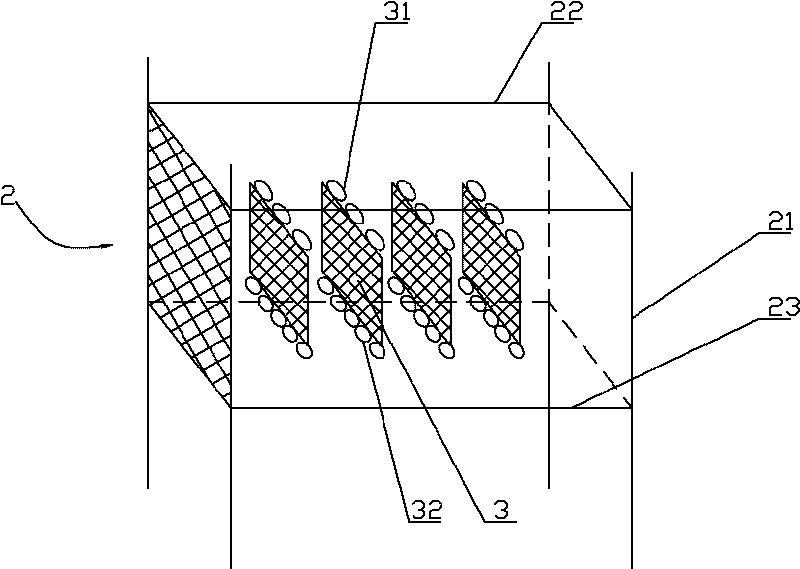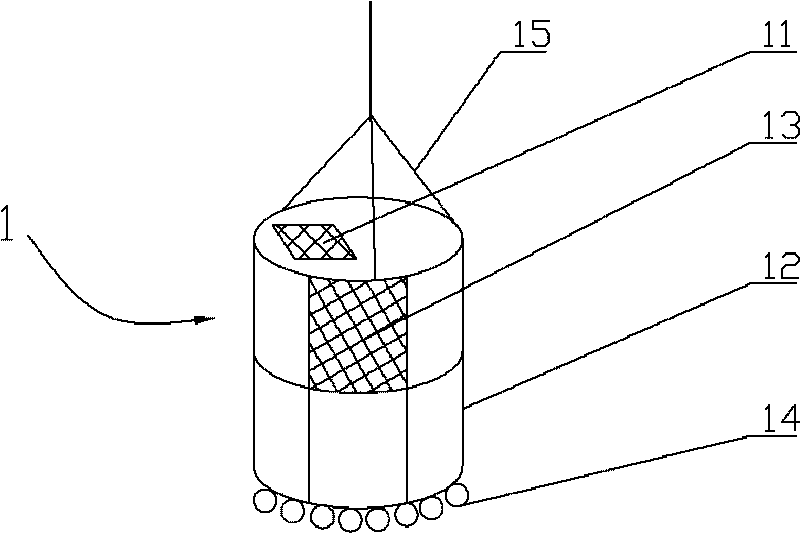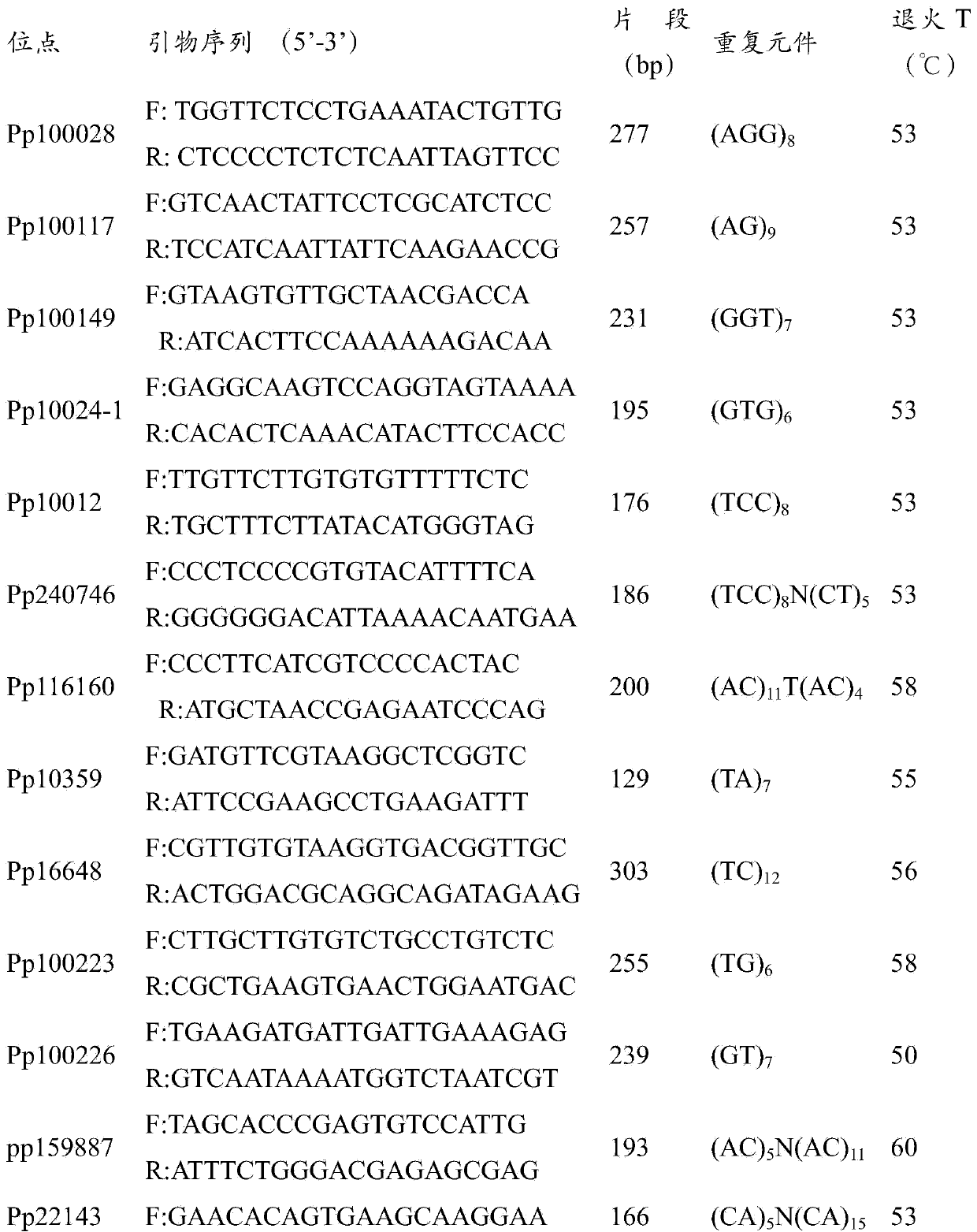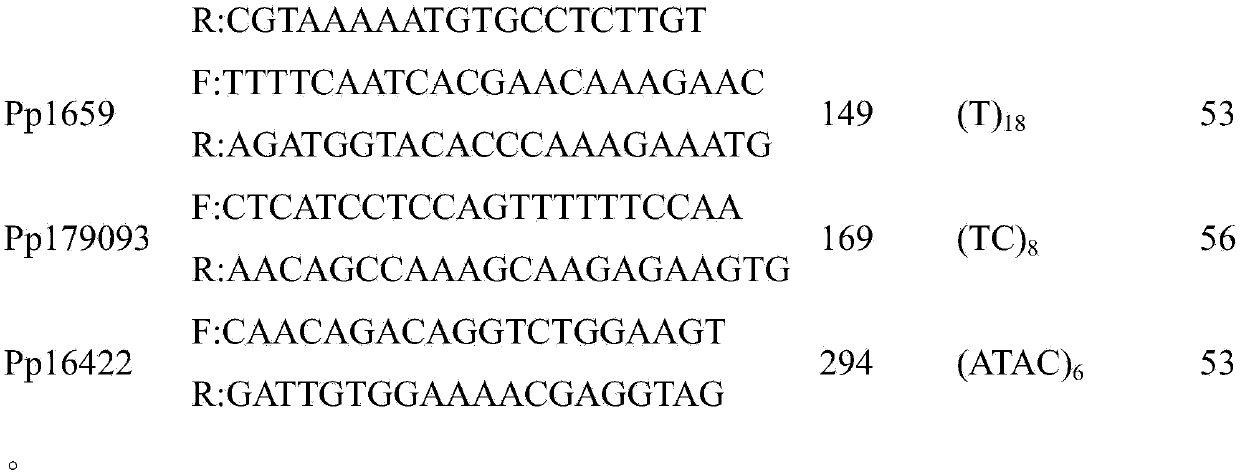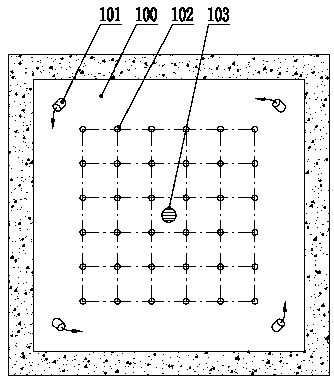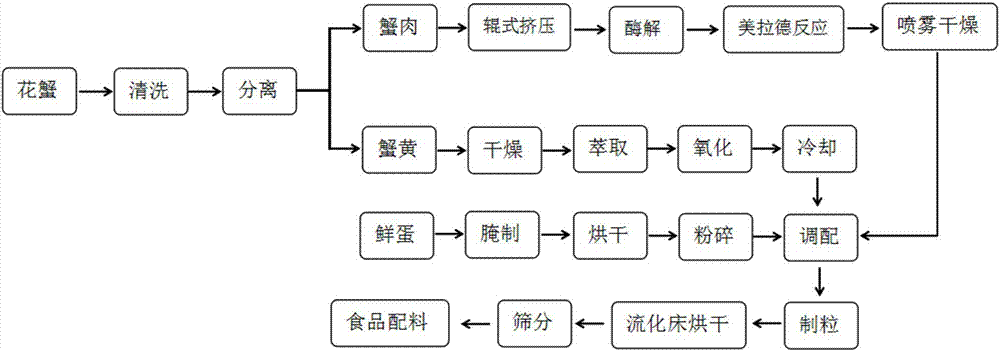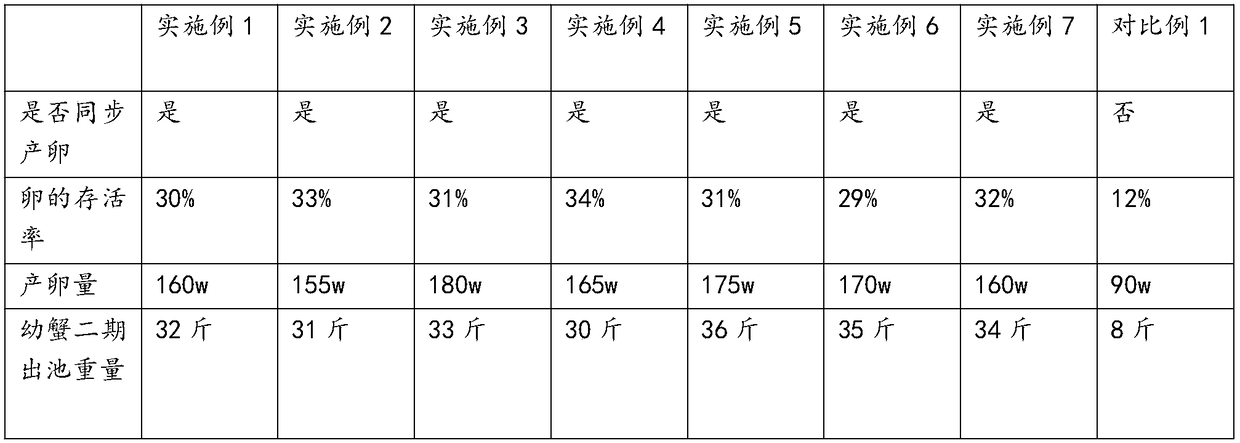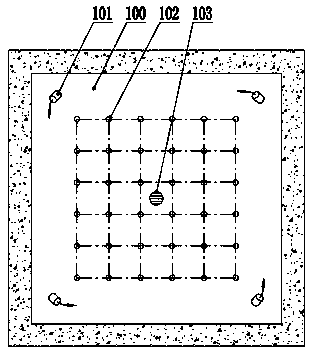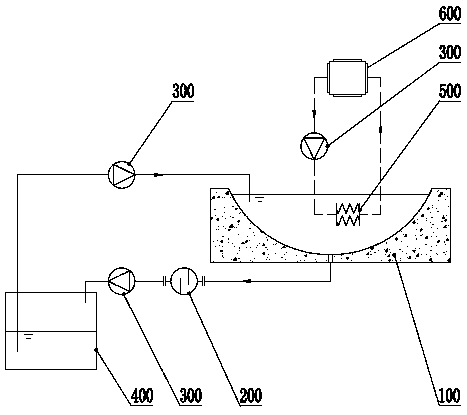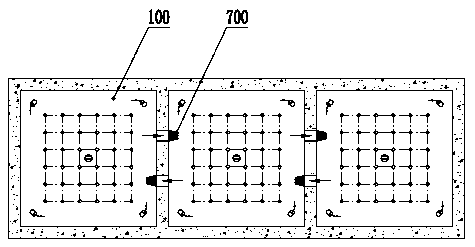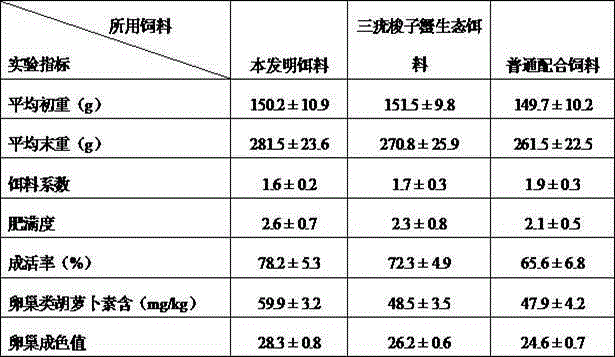Patents
Literature
Hiro is an intelligent assistant for R&D personnel, combined with Patent DNA, to facilitate innovative research.
34 results about "Portunus pelagicus" patented technology
Efficacy Topic
Property
Owner
Technical Advancement
Application Domain
Technology Topic
Technology Field Word
Patent Country/Region
Patent Type
Patent Status
Application Year
Inventor
Portunus armatus (formerly Portunus pelagicus), also known as the flower crab, blue crab, blue swimmer crab, blue manna crab or sand crab, rajungan in Indonesian, and alimasag in Tagalog, Kapampangan, and Pangasinan, is a large crab found in the intertidal estuaries around most of Australia and east to New Caledonia.
Feed for portunus trituberculatus miers
InactiveCN102018153APrevent each otherImprove the survival rate of breedingFood processingClimate change adaptationAquatic animalAdditive ingredient
The invention discloses a feed for portunus trituberculatus miers, belonging to the field of feed for aquatic animal culture. The feed comprises the following ingredients in percentage by weight: 35-45% of fish meal, 10-18% of soybean meal, 5-8% of spent grains liquor of corn alcohol, 3-8% of beer yeast, 3-5% of shrimp shell meal, 15-25% of high protein flour, 3-5% of squilla protein plasma, 1-3% of phospholipid oil, 1-3% of refined fish oil, 1-3% of complex binding agent, 1-2% of compound mineral substance, 0.5-1.5% of compound vitamin, 0.2-0.4% of choline and 0.1-0.4% of edible salt. Compared with the prior art, the feed provided by the invention comprises reasonable ingredients, has comprehensive nutrition, is full of nutriments, has extremely strong food calling effect on the portunus trituberculatus miers, can meet the requirements for artificial culture of the portunus trituberculatus miers in ponds, improves the food intake, effectively prevents the phenomenon that the portunus trituberculatus miers clamps the food mutually, and has obvious effect on improving the culture survival rate of the portunus trituberculatus miers.
Owner:宁波海川水产饲料有限公司
Method for ecologically breeding portunus trituberculatus in ponds
InactiveCN103875566AImprove bottom habitat conditionsPromote growthClimate change adaptationPisciculture and aquariaShrimpWater quality
The invention discloses a method for ecologically breeding portunus trituberculatus in ponds, wherein people breed the portunus trituberculatus, shrimps and shellfish in the ponds in a matched mode. The portunus trituberculatus, the shrimps and the shellfish are bred in a mixed mode, and a scientific ecological stereoscopic mixed breeding mode is built. Fed bait meets the growth requirement of the portunus trituberculatus, and residual bait can be used by the shrimps; besides, excreta of the shrimps and the portunus trituberculatus and smaller organic detritus can be used as bait of the shellfish, and various kinds of natural bait or artificial feed of the ponds are used to the maximum degree; due to ingestion of the shellfish, water of the breeding ponds is purified better; by means of metabolism, decomposition and assimilation, self-improvement on a water environment is facilitated, and growing speed and anti-disease ability of the portunus trituberculatus, the shrimps and the shellfish are enhanced.
Owner:SUZHOU YANGCHENGHU MODERN AGRI INDPARK SPECIAL AQUACULTURE
Feed for facilitating swimming crabs to breed red cream and preparation method of feed
The invention belongs to the technical field of feeds and in particular relates to a feed for facilitating swimming crabs to breed red cream. The feed comprises the following components in percentage by weight: 30-60 percent of fish meal, 10-30 percent of an adhesive, 1-5 percent of shrimp shell meal, 0.5-3 percent of Haematococcus algae powder, 0.2-1 percent of cassava modified starch, 0.2-1 percent of astaxanthin grease, 1-3 percent of fish oil, 2-6 percent of phagostimulant, 0.1-1 percent of carrageenan, 0.1-1 percent of xanthan gum, 0.02-0.5 percent of vitamins, 0.1-1 percent of choline chloride and 20-40 percent of water. According to the formula, the feed can provide basic nutrient elements required in the cream breeding period of the swimming crabs; particularly, as the Haematococcus algae powder and the astaxanthin grease are added to the feed, the purity of the crab cream can be effectively enhanced due to natural astaxanthin substances contained in the red globose alga powder and the astaxanthin grease, and the color of the crab cream is natural and stable; and moreover, the phagostimulant can stimulate the olfactory organ of the swimming crabs, so that the food intake of the crabs is enhanced, and the utilization rate of the feed is improved. The invention also discloses a preparation method of the feed. The feed prepared to be in a sausage type is conveniently eaten by the crabs, the feeding amount is easier to control and regulate, and a water body is not polluted by the feed.
Owner:NINGBO HONGLONG BIO TECH
Method for breeding blue crab families
ActiveCN103250666AIncrease specificationImprove survival rateClimate change adaptationPisciculture and aquariaMatingGenetic diversity
A method for breeding blue crab families comprises the following steps: S1, collecting blue crabs bred in different populations of China to construct base groups, and conducting genetic diversity comprehensive evaluation, S2, respectively selecting parent crabs from the different populations, establishing the families according to the complete diallel cross mode to grow larvae and breed in a standardizing mode, and calculating hybrid heterosis rates, S3, utilizing the crabs with outstanding hybrid heterosis to mate and combine, constructing the families through indoor artificial directional mating to grow the larvae and breed in the standardizing mode, and twice screening stocking families, S3, over-wintering mated female crabs of parent groups bred indoors of the stocking families, S4, selecting the parent crabs with high egg-laying rates from each family in following spring to grow the larvae and breed in the standardizing mode, and utilizing the breeding method to continue to screen the families. By means of the method for breeding the blue crab families, the growth rate and the survival rate of the blue crabs are used as indexes, blue crab families breeding is conducted, family economic characters are comprehensively evaluated, according to breeding results, blue crab norms are improved in the harvesting process, the breeding survival rate is improved, so that breeding benefits are greatly increased, and deviation caused by single character breeding is avoided.
Owner:YELLOW SEA FISHERIES RES INST CHINESE ACAD OF FISHERIES SCI
Method and device for cage propagation of Portunus trituberculatus Miers in coastal mudflat pond
InactiveCN101703024AConvenience and flexibility in raising seedlingsImprove adaptabilityClimate change adaptationPisciculture and aquariaEcological environmentGreenhouse
The invention provides a method for the cage propagation of Portunus trituberculatus Miers in a coastal mudflat pond, which is characterized in that: selecting and domesticating parent crabs; selecting egg-carrying crabs and producing juveniles; and breeding juvenile crabs, wherein the whole juvenile crab breeding process is performed in natural ecological environment in the coastal mudflat pond. The invention also provides breeding cages and accessory facilities which are used in the method, which comprise temporary parent crab breeding cages, breeding cages and juvenile attaching bases. In the cage propagation in the coastal mudflat ponds of the invention, the parent crabs are gown in the temporary breeding cages, the juveniles are distributed in the breeding cages and the juveniles are bred in the cages; all facilities are arranged in one pond, so the operation is convenient; being bred in the outdoor coastal mudflat pond, the Portunus trituberculatus Mier juveniles can well adapt to the outside environment; the survival rate is high; the juveniles production is consistent; and the drawback of low adaptability to outside environment of juvenile crabs bred in greenhouses is overcome.
Owner:ZHEJIANG OCEAN UNIV
Breeding method of portunus trituberculatus rapid-growth novel variety
ActiveCN104982362AAvoiding the Difficulty of Growing Environment DifferencesShorten the time interval between platooningClimate change adaptationPisciculture and aquariaGrowth dataPortunus pelagicus
The invention relates to a breeding method of a portunus trituberculatus rapid-growth novel variety, and relates to the technical field of portunid breeding. The method comprises the steps of parent crab selection, indoor copulation, indoor overwintering, reinforcement culturing, larval rearing, family group establishment, and copulation program development. According to the invention, parent crabs are bred artificially, and measures such as gradient temperature and family group establishment are taken. With the method, portunus trituberculatus synchronous reproduction and growth data precise evaluation are preliminarily realized.
Owner:YELLOW SEA FISHERIES RES INST CHINESE ACAD OF FISHERIES SCI +1
Method for mixed culturing of swimming crabs and palaemon carinicauda
InactiveCN104304107AMeet daily needsRestoring the ecological environmentBio-organic fraction processingFood processingNutritionWater quality
The invention relates to a method for mixed culturing of swimming crabs and palaemon carinicauda. The method belongs to the technical field of fishery industry and is characterized by comprising the following steps of (1) clearing up a pond; (3) putting swimming crab seedlings in mid-to-end of May, selecting III-period baby crabs cultivated in a soil pool, putting 1-1.5kg per mu, in the end of June, putting 1-2kg of lively-swimming egg-carried shrimps per mu, and planting submerged plant water caltrop in the bottom part of the pond for improving water quality; (4) replacing 70-80 percent of water at every 5-7 days, sterilizing in time after water replacement, and putting water quality modifying agent for one time at the second day; (5) feeding crab and shrimp mixed feed, and then feeding according to the conventional mixed culturing method of the swimming crabs and palaemon carinicauda. According to the method for the mixed culturing of the swimming crabs and the palaemon carinicauda, the nutrition is balanced, the daily demands of the swimming crabs and palaemon carinicauda can be met, the feed efficiency is high, the survival rate of the swimming crabs and palaemon carinicauda is high, the ponderal growth is quick, the immunity of crab bodies can be remarkably enhanced, and the capabilities of antibiosis and antiviral of the crab bodies are improved.
Owner:ZHEJIANG OCEAN UNIV
Ocean fishing wild swimming crab sand pit fattening breeding method
ActiveCN106818573ALow prevalenceReduce mortalityClimate change adaptationPisciculture and aquariaWater filterWater quality
The invention belongs to the field of aquaculture and particularly discloses an ocean fishing wild swimming crab sand pit fattening breeding method. The method includes the steps that a temporary rearing pond is prepared; sand is laid in the temporary rearing pond and water is injected into the temporary rearing pond; crab varieties are selected; feeding is conducted twice a day, wherein the death rate and the disability rate can be reduced by selecting female crabs captured from a sea area crab cage, and the female crabs obtained after molting and mating can achieve high-density rearing; air which is introduced in a dispersed mode increases the dissolved oxygen content so as to satisfy the aerobic characteristic of wild swimming crabs and enhances the sea water turbulence degree to inhibit water quality deterioration; a circulating water pipeline accelerates sea water update and flowing, inhibits water quality deterioration and promotes air dispersion; a water filter can effectively remove pollutants like organic matter in seawater, pathogenic organisms like bacteria are killed, and diseases are reduced; residual bait and injured and diseased crabs in the temporary rearing pond are picked after two times of drainage every day, and water quality deterioration and disease spreading are inhibited. In a word, the disease rate and death rate of the swimming crabs are reduced, fattening growth and quality of the wild swimming crabs are promoted, and economic benefits are improved.
Owner:ZHEJIANG OCEAN UNIV
Portunus pelagicus polymorphic microsatellite molecular marker, identification method and application
ActiveCN107937395ARapid identificationIdentification of large quantitiesMicrobiological testing/measurementDNA/RNA fragmentationSequence analysisGenomic DNA
The invention relates to a portunus pelagicus polymorphic microsatellite molecular marker, an identification method and application. The identification method comprises the following steps: portunus pelagicus genomic DNA (Deoxyribonucleic Acid) extraction, simplified genomic library construction and high-throughput sequencing, sequence analysis and microsatellite primer designing, and microsatellite marker polymorphism evaluation. According to the identification method disclosed by the invention, 17983 microsatellite loci are identified, and 16 microsatellite markers having molecular polymorphism are screened out. The identification method disclosed by the invention has the advantages that the operation is simple and safe, the accuracy is high, a result is true and reliable, and the like,and is capable of being used for quickly and massively obtaining portunus pelagicus microsatellite markers; the technical method disclosed by the invention can be widely applied to numerous species having no reference genome because of no need to know genomic information in advance, and has a wide popularization and application potential; in addition, a candidate tool can be provided for population genetic variation evaluation, genetic relationship identification and genetic linkage map construction of portunus pelagicus by 16 pairs of polymorphic microsatellite marker primers obtained by themethod.
Owner:SHANTOU UNIV
Out-of-season portunus trituberculatus larva breeding method
ActiveCN110338113ARealize full artificial breedingEliminate industry problems of seedling raisingClimate change adaptationPisciculture and aquariaDevelopmental stageWater quality
The invention discloses an out-of-season portunus trituberculatus larva breeding method. The method comprises three steps of selection of parents, hatching of ovigerous crabs and larva breeding. The method has the advantages that the artificially bred parents are selected to achieve full-artificial breeding, the industry problem of relying on sea fishing for breeding wild ovigerous crabs is eliminated, and large-scale larva breeding is facilitated; mid-September is selected as the time for hatching the ovigerous crabs, which avoids the precocity of crab larvae in the current year and also ensures larger specification when the products appear on the market in June-July of the next year; according to the developmental stage of the crab larvae, different anti-disability opacifying agents areselected, reduce the cannibalism of the crab larvae, make the crab larvae develop simultaneously and rapidly, also have a function of regulating the water quality, and greatly increase the survival rate; specially, water is changed by adopting a crab larva taking-out mode, the workload is not increased, but an artificial selection effect on the crab larvae during crab larva taking-out is achieved,and sick and weak crab larvae with poor vigour can be eliminated, thereby improving the whole quality of the crab larvae.
Owner:MARINE FISHERIES RES INST OF ZHEJIANG
Environment-friendly seawater pond culture method for portunus trituberculatus and stichopus japonicus
InactiveCN108077140ATake advantage ofCut off the transmission routeWater/sewage treatment by irradiationClimate change adaptationMarine cultureMixed culture
The invention relates to an environment-friendly seawater pond culture method for portunus trituberculatus and stichopus japonicus and belongs to the technical field of marine culture. The method includes: in early March, preparing a pond, and laying a stichopus japonicus adhering base; in early April, adding 240 jin of 15 / jin stichopus japonicus seeds to each mu of the pond according to pond area, and normally feeding; in early May, adding 200-400 Huangxuan No. 1 stage-VI female portunus trituberculatus to each mu of the pond according to the number of the enemies of the stichopus japonicus in the pond, wherein the portunus trituberculatus is not fed during culture; in the first ten days of November, harvesting the portunus trituberculatus and the stichopus japonicus for selling. Experiments of the method prove that the portunus trituberculatus can be added in the whole culture process of the stichopus japonicus to perform mixed culture, the portunus trituberculatus adding is not limited to an estivation period, and the portunus trituberculatus does not prey on or damage the stichopus japonicus even if the portunus trituberculatus is not fed. The method has the advantages that theidea that technicians in the field takes the portunus trituberculatus as the culture enemy of the stichopus japonicus for a long time is changed, culture water is utilized sufficiently, and culture economic benefits are increased.
Owner:YELLOW SEA FISHERIES RES INST CHINESE ACAD OF FISHERIES SCI
Swimming crab breeding method
InactiveCN103875558AMeatyFat fatClimate change adaptationPisciculture and aquariaZoologyPortunus pelagicus
The invention discloses a swimming crab breeding method. The method comprises the following steps of (1) rearing pond selection, (2) juvenile crab stocking, (3) breeding management and (4) daily management. Swimming crabs bred through the swimming crab breeding method have the advantages of being fleshy, fat, delicious in taste, nutrient-rich and the like.
Owner:SUZHOU YANGCHENGHU MODERN AGRI INDPARK SPECIAL AQUACULTURE
Portunus trituberculatus and exopalaemon carinicauda polyculture feed
The invention provides a portunus trituberculatus and exopalaemon carinicauda polyculture feed and belongs to the technical field of fishery industry. The portunus trituberculatus and exopalaemon carinicauda polyculture feed is prepared from the following substances in parts by weight: 20-30 parts of red fishmeal, 5-10 parts of arginine, 8-15 parts of spiral seaweed powder, 4-6 parts of immunopolysaccharide, 10-15 parts of fermented soybean meal, 2-3 parts of pinus massoniana needle powder, 1-5 parts of vinasse, 2-6 parts of bacillus subtilis powder, 2-3 parts of fish oil, 10-15 parts of rice bran, 5-10 parts of nepeta cataria powder, 5-8 parts of cellulase, 0.2-0.5 part of compound vitamin, 0.5-1 part of compound mineral substance and 5-8 parts of houttuynia cordata powder. The portunus trituberculatus and exopalaemon carinicauda polyculture feed has balanced nutrition and can meet the daily requirements of portunus trituberculatus and exopalaemon carinicauda; the feed efficiency is high, the survival rate of the portunus trituberculatus and the exopalaemon carinicauda is high and the weight growth speed is high; after all the raw materials are reasonably compounded, the palatability and the food calling effect are good; the immunity of the portunus trituberculatus can be remarkably enhanced and the antibacterial and anti-virus capabilities of the portunus trituberculatus are improved; and the portunus trituberculatus and exopalaemon carinicauda polyculture feed has good stability in water and is environment-friendly.
Owner:ZHEJIANG OCEAN UNIV
Food accessory material and preparation method thereof
ActiveCN106942686AMellow crab flavorStrong crab flavorNatural extract food ingredientsFood ingredient functionsMonosodium glutamatePolysaccharide
The present invention discloses a food accessory material and a preparation method thereof. The food accessory material comprises the following materials: 50-70% of salted egg yolk, 5-10% of oxidized crab ovary and digestive gland oil, 4-8% of a crab meat extract, 0.5-1% of soluble soybean polysaccharide, 0.01-0.03% of a rosemary extract, and 20-30% of accessory materials. excipients. The accessory materials comprise the following materials in weight percentages: 10-50% of starch, 20-40% of monosodium glutamate, 20-30% of edible salt, 8-15% of white sugar and 2-5% of a flavor enhancer. The preparation method aims at the existing problems in portunus pelagicus processing and utilization and seasoning product industry, the portunus pelagicus, crab ovaries and digestive glands, and salted egg yolk are used as the main raw materials, the seasoning materials having characteristics of the crab meat, being mellow in fragrance, delicious in taste, rich in nutrition and large in market demands and the preparation method thereof are provided, and the preparation method is applied in production.
Owner:ZHEJIANG ACADEMY OF AGRICULTURE SCIENCES
Portunus trituberculatus fresh-retaining living-keeping method
InactiveCN107996479AAvoid the phenomenon of amputation or even deathSmall temperature differenceClimate change adaptationPisciculture and aquariaEconomic benefitsOxygen
The invention relates to a Portunus trituberculatus fresh-retaining living-keeping method. The Portunus trituberculatus fresh-retaining living-keeping method includes breeding, grading cooling and anesthetization, and packaging. The invention optimizes a formula of an oxygen producer, discloses a preparation method of the oxygen producer, can effectively control the releasing speed of oxygen on the premise that the oxygen producer is completed disintegrated, and can improve the utilization rate and a use effect of the oxygen producer; and the Portunus trituberculatus fresh-retaining living-keeping method is easy to operate, is low in cost, can greatly improve the survival rate of sea crabs and prolong the survival time of the sea crabs, can achieve long-distance long-time transport of thesea crabs in a waterless packaging manner, and is significant in economic benefits.
Owner:ZHEJIANG OCEAN UNIV
A kind of cultivation method of Portunus crab broodstock
InactiveCN103734053BAvoid deathPrevent the phenomenon of colliding limbsClimate change adaptationPisciculture and aquariaZoologyObserved Survival
The invention discloses a parent swimming crab breeding method. The parent swimming crab breeding method comprises the steps of selecting healthy parent crabs and arranging a parent crab breeding room; adjusting the temperature of the breeding room; disinfecting the parent crabs; putting the parent crabs into the parent crab breeding room to be bred; disinfecting the parent crab breeding room for one time every day; breeding male crabs and female crabs for 20 days in a separated mode and then transferring the male crabs and female crabs to a copulation pond to be bred for 10-12 days till the female crabs are fertilized. By adopting the parent swimming crab breeding method, the parent crab survival rate is high, the parent crab physique is obviously strengthened, the fertilization rate of the female crabs in the parent crabs is improved, the fertilized ovum survival rate is improved, and the survival rate of young crabs developed from fertilized ovum is improved.
Owner:北海市振发海洋产业科技有限公司
Grille intensive breeding system for blue crabs
InactiveCN103548742AAvoid the problem of low yieldSave waterClimate change adaptationPisciculture and aquariaWater flowIntensive animal farming
The invention discloses a grille intensive breeding system for blue crabs. The grille intensive breeding system comprises a reservoir, a breeding dish and a degradation kit, wherein the breeding dish is connected with the reservoir, and the reservoir is a grille reservoir; the breeding dish comprises a plurality of breeding grilles which are arranged at intervals, and the degradation kit and the breeding dish are connected with the reservoir; water flowing out of the breeding dish is degraded by the degradation kit, and the degraded water flows back to the reservoir. According to the breeding system provided by the embodiment of the invention, the breeding dish is arranged into a grille breeding dish comprising a plurality of breeding grilles, the blue crabs are fished out to be put in the breeding dish for separate breeding, and only one blue crab is put in each breeding grille, so that the problem that the yield is lower because the blue crabs kill each other in the traditional pool breeding is effectively avoided.
Owner:INST OF OCEANOLOGY & MARINE FISHERIES JIANGSU
Ecological breeding method for raising juvenile Portunus trituberculatus
ActiveCN108377944APalatability needsRich in nutrientsClimate change adaptationAnimal feeding stuffProcess scaleProcess scaling
The invention discloses an ecological breeding method for raising juvenile Portunus trituberculatus. The technical scheme of the ecological breeding method comprises the following steps of: S1, performing optimal selection of parent Portunus trituberculatus; S2, carrying out pre-treatment of a cultivation pool; S3, adding pool water; S4, placing the parent Portunus trituberculatus into the cultivation pool; S5, controlling the temperature of the water, and gradually raising the temperature; S6, setting a temperature compensation zone C for parent Portunus trituberculatus which develops slowly;S7, starting the temperature compensation zone; S8, after all the parent Portunus trituberculatus is at an oogenesis state, and all eggs are in the same color, hanging the parent Portunus trituberculatus in a cage for spawning so as to obtain Portunus trituberculatus eggs which are produced synchronously; S9, preparing live bait; S10, cultivating zoea; S11, feeding megalopa; and S12, feeding thejuvenile Portunus trituberculatus. Through the ecological breeding method, reasonable control on the temperature of the water in the cultivation pool, the water quality environment and feed is achieved, whole-process scale of breeding of Portunus trituberculatus is achieved, and the yield of Portunus trituberculatus breeding is improved greatly.
Owner:天津海升水产养殖有限公司
Out-of-season male and female separate breeding method of portunus trituberculatus
ActiveCN110338114AReduce cannibalismImprove the survival rate of breedingClimate change adaptationPisciculture and aquariaThree stageEconomic benefits
The invention discloses an out-of-season male and female separate breeding method of portunus trituberculatus. The method comprises three stages of hatching of ovigerous crabs, large-scale larval rearing and male and female separate breeding. The method has the advantages that male and female separate breeding is adopted, which weakens cannibalism caused by inconformity of the growth speed of maleand female crabs, thereby greatly increasing the breeding survival rate and increasing the yield; what's more, the out-of-season separately bred male crabs can appear on the market 15-30 days earlierthan the female crabs, which fills in early-stage gaps of the market, and within most time of the closed fishing season of the portunus trituberculatus from May to August, products can be provided for customers, thereby obtaining good social and economic benefits.
Owner:MARINE FISHERIES RES INST OF ZHEJIANG
Wild swimming crab fattening breeding box
ActiveCN109258550ARest and relaxPromote digestion and absorptionPisciculture and aquariaEngineeringActuator
The invention discloses a wild swimming crab fattening breeding tank comprising a gate capable of dividing the breeding tank into two parts and arranged in the middle of the breeding tank, wherein water communication of a first breeding tank and a second breeding tank separated by the gate is controlled by the gate; an actuator for driving the gate to be opened or closed; a first drain pipe for draining water in the first breeding tank when the gate is closed and a second drain pipe for draining water in the first breeding tank and the second breeding tank when the gate is opened. A first light source and a second light source are respectively disposed in the first breeding tank and the second breeding tank, and the second light source is disposed in a hiding chamber. A controller separately controls the actuator, the first drain pipe, the second drain pipe, a water pump, the first light source and the second light source. By means of the breeding box, the first breeding box can be flushed clean each time a feed is thrown to maintain a good fattening environment and improve the quality of swimming crab meat.
Owner:李金兰
Parent swimming crab breeding method
InactiveCN103734053AAvoid deathPrevent the phenomenon of colliding limbsClimate change adaptationPisciculture and aquariaZoologyObserved Survival
The invention discloses a parent swimming crab breeding method. The parent swimming crab breeding method comprises the steps of selecting healthy parent crabs and arranging a parent crab breeding room; adjusting the temperature of the breeding room; disinfecting the parent crabs; putting the parent crabs into the parent crab breeding room to be bred; disinfecting the parent crab breeding room for one time every day; breeding male crabs and female crabs for 20 days in a separated mode and then transferring the male crabs and female crabs to a copulation pond to be bred for 10-12 days till the female crabs are fertilized. By adopting the parent swimming crab breeding method, the parent crab survival rate is high, the parent crab physique is obviously strengthened, the fertilization rate of the female crabs in the parent crabs is improved, the fertilized ovum survival rate is improved, and the survival rate of young crabs developed from fertilized ovum is improved.
Owner:北海市振发海洋产业科技有限公司
Intercropping mode of globefish and portunid
InactiveCN110463630AMutual damage is limitedSuitable temperature rangeClimate change adaptationPisciculture and aquariaWater volumeSquare meter
The invention relates to an intercropping mode of globefish and portunid. The mode includes the following steps of after the National Day, collecting and temporarily cultivating the fresh portunids ina seawater earth pond or factory workshop; after the globefishes are transferred to the workshop, transferring the portunids to a cement pond of a globefish workshop; stocking the portunids accordingto the intercropping specification of 1.5 to 2 jin of portunids (each being 3 liang or above) per square meter; controlling the water depth of the cement pond in the workshop to be 0.8 to 1.8 meters;changing the water once every 2-3 days, each time the water volume being half of the water in the pond; exchanging ponds for trash removal once every half a month, wherein when the water level dropsto 40 cm, the portunids and globefishes are fished out, and put into an adjacent breeding pond, and then the pond is washed and disinfected; feeding according to the globefish stock, wherein the portunids are not fed separately; controlling the water temperature according to overwintering requirements of the globefishes; before the New Year's Day, selling the portunids successively until after theSpring Festival. The mode of the invention uses overwintering ponds of the globefishes to carry out portunid intercropping production, and achieves the goals of saving resources and improving qualityand efficiency.
Owner:唐山市曹妃甸区农林畜牧水产技术推广站
A kind of breeding method of Portunus pelagics
InactiveCN103651200BPromote the adjustment of variety structurePromote the development of marine economyClimate change adaptationPisciculture and aquariaJuvenileMariculture
The invention relates to a juvenile crab cultivating method for high-sea swimming crabs. The juvenile crab cultivating method comprises the steps of selecting parent crabs, preparing a storage pond, managing non-egg-carrying crabs, managing egg-carrying crabs and cultivating juvenile crabs. According to the juvenile crab cultivating method for the high-sea swimming crabs, the manual juvenile crab cultivating technology study for the high-sea swimming crabs is carried out for increasing an excellent new cultivation product in Guangxi, and the method plays an important role in promoting the breed structure adjustment of sea farming industries and developing the ocean economy.
Owner:北海市振发海洋产业科技有限公司
Yangyu for takoyaki preparation and preparation method of Yangyu
The invention discloses Yangyu for takoyaki preparation and a preparation method of Yangyu. The Yangyu is characterized in that the Yangyu is mainly prepared from the following raw materials according to parts by weight: 40-50 parts of flour, 0.5-1.2 parts of baking powder, 0.6-1.3 parts of baking soda, 0.3-0.4 parts of salt, 9-12 parts of portunus pelagicus meat enzymatic hydrolysate, 0.3-0.4 parts of maltose and 50-60 parts of water; the portunus pelagicus meat enzymatic hydrolysate is obtained by performing enzymolysis on fresh portunus pelagicus meat by using flavourzyme, wherein the weight ratio of the flavourzyme to the fresh portunus pelagicus meat is (1.4-1.6):100. The preparation method comprises the steps: 1) performing enzymolysis on the fresh portunus pelagicus meat; 2) mixing and stirring raw materials; 3) fermenting flour milk; 4) frying; 5) draining oil of the finished product. The Yangyu for takoyaki preparation has the advantages of unique crab meat flavor, attractive color and luster, delicious taste, crisp mouthfeel, good oxidation resistance and longer shelf life.
Owner:NINGBO UNIV
Seafood flavored braising juice and preparation method thereof
ActiveCN107173774ASatisfy the pursuit of umamiRigorous selection of materialsFood scienceCuttlefishPortunus pelagicus
The present invention belongs to the technical field of food processing and discloses seafood flavored braising juice. The braising juice is prepared by boiling main materials of portunus pelagicus, dried scallops, dried cuttlefish, razor clams, dried shrimps, crucian carps, chicken bones and back bones. The prepared seafood flavored braising juice is rigorous in material selecting, scientific and reasonable in formula matching, combines requirements in aspects of nutrition, taste, color and luster, etc., is rich in taste levels, satisfies people's pursuit of delicious taste of seafood, also has certain health-care functions of nourishing body and caring health, and can also grant a seafood taste and a special mellow taste of stewing dish even be applied in originally tasteless cooking raw materials. The seafood flavored braising juice is greatly simplified in processing processes on technologies, conforms to development of modern catering industries and has relatively great application prospects.
Owner:LINGNAN NORMAL UNIV
A Polymorphic Microsatellite Molecular Marker and Identification Method and Application of Portunus pelagics
ActiveCN107937395BRapid identificationIdentification of large quantitiesMicrobiological testing/measurementDNA/RNA fragmentationSequence analysisGenetics
The invention relates to a portunus pelagicus polymorphic microsatellite molecular marker, an identification method and application. The identification method comprises the following steps: portunus pelagicus genomic DNA (Deoxyribonucleic Acid) extraction, simplified genomic library construction and high-throughput sequencing, sequence analysis and microsatellite primer designing, and microsatellite marker polymorphism evaluation. According to the identification method disclosed by the invention, 17983 microsatellite loci are identified, and 16 microsatellite markers having molecular polymorphism are screened out. The identification method disclosed by the invention has the advantages that the operation is simple and safe, the accuracy is high, a result is true and reliable, and the like,and is capable of being used for quickly and massively obtaining portunus pelagicus microsatellite markers; the technical method disclosed by the invention can be widely applied to numerous species having no reference genome because of no need to know genomic information in advance, and has a wide popularization and application potential; in addition, a candidate tool can be provided for population genetic variation evaluation, genetic relationship identification and genetic linkage map construction of portunus pelagicus by 16 pairs of polymorphic microsatellite marker primers obtained by themethod.
Owner:SHANTOU UNIV
Seafood-flavored braised sauce and preparation method thereof
ActiveCN107173774BSatisfy the pursuit of umamiRigorous selection of materialsFood scienceBiotechnologyCuttlefish
The present invention belongs to the technical field of food processing and discloses seafood flavored braising juice. The braising juice is prepared by boiling main materials of portunus pelagicus, dried scallops, dried cuttlefish, razor clams, dried shrimps, crucian carps, chicken bones and back bones. The prepared seafood flavored braising juice is rigorous in material selecting, scientific and reasonable in formula matching, combines requirements in aspects of nutrition, taste, color and luster, etc., is rich in taste levels, satisfies people's pursuit of delicious taste of seafood, also has certain health-care functions of nourishing body and caring health, and can also grant a seafood taste and a special mellow taste of stewing dish even be applied in originally tasteless cooking raw materials. The seafood flavored braising juice is greatly simplified in processing processes on technologies, conforms to development of modern catering industries and has relatively great application prospects.
Owner:LINGNAN NORMAL UNIV
Method for efficiently breeding blue crabs
ActiveCN103141426BCut off the transmission routeImprove survival rateClimate change adaptationAnimal feeding stuffDiseaseFemale to male
The invention relates to a method for efficiently breeding blue crabs. The method comprises the following steps: performing intermediate breeding on II-stage baby blue crabs in an outdoor cement pit greenhouse; disinfecting the water for breeding through an ultraviolet lamp and mounting an oxygenating device in a breeding pond; feeding big disinfected brine shrimps at regular time; exchanging 15% water per day; after the II-stage baby blue crabs grow and become V-stage baby blue crabs, putting juvenile crabs into the breeding pond at a sex ratio of female to male being 3:1; after ending mating, fishing out the male crabs; continuously breeding the female crabs; and when the water temperature is lower than 10 DEG C, putting the female crabs into the outdoor cement pit greenhouse for temporarily breeding and putting into the market before and after the Spring Festival, thereby greatly increasing the breeding yield and economic benefit. According to the method provided by the invention, the juvenile crabs are prevented from being killed by enemies and severe environment; the use ratio of baits is increased and the happening of diseases is reduced; the breeding yield of the blue crabs is increased by 26.99% and the breeding benefit is increased by 2.39 times, by adopting the method provided by the invention; the method can be widely applied to the breeding for the blue crabs; the energy conservation and the environment protection are realized; and the economic benefit and the social benefit are obvious.
Owner:YELLOW SEA FISHERIES RES INST CHINESE ACAD OF FISHERIES SCI
A temporary bait suitable for female crabs of Portunus trituberculatus
ActiveCN103960545BImprove toleranceImprove qualityClimate change adaptationAnimal feeding stuffAnimal scienceAdditive ingredient
The invention discloses temporary rearing baits suitable for female portunus trituberculatus. The temporary rearing baits are characterized by comprising baits I and baits II, which are matched, wherein the baits I comprise main ingredients of Peruvian fishmeal, meat bone meal, small trash fishes, ground clamworms and the like; the baits II comprise main ingredients of Chinese fishmeal, ground potamocorbula, small trash fishes, dewatered carrots and the like. The invention further relates to a feeding method of the baits; the baits I are fed during the temporary rearing early stage of the female portunus trituberculatus, and the baits II are fed during the temporary rearing later stage of the female portunus trituberculatus. The temporary rearing baits have the effects of remarkably enhancing the pathogen tolerance and low-temperature tolerance of the female portunus trituberculatus, increasing the survival rate of the temporarily reared female portunus trituberculatus, improving the quality of portunus trituberculatus cream and increasing the breeding yield. The raw materials of the baits are easily available, a process is simple, and the nutrition is balanced, so that the problems of high morbidity rate during temporary tearing period, low growth speed, poor portunus trituberculatus cream quality and the like of the female portunus trituberculatus are effectively solved; the baits can be applied to temporary tearing of the female portunus trituberculatus in a large scale.
Owner:HUAIHAI INST OF TECH
Mixed ecological culture method of high-sea swimming crabs and Chinese prawns
InactiveCN112106707ATake advantage ofProtect environmentClimate change adaptationPisciculture and aquariaPrawnZoology
The invention relates to a mixed ecological culture method of high-sea swimming crabs and Chinese prawns, and belongs to the technical field of swimming crab breeding. The mixed ecological culture method comprises the following steps of selecting high-sea swimming crab II-stage young crabs with complete appendages, smooth body surfaces and strong healthy vitality and young Chinese prawns with thebody length of 0.9-1.1 cm for mixed ecological breeding; building an outdoor plastic greenhouse pool to temporarily culture the young high-sea swimming crabs, so that the growth period is prolonged, and the marketing specification is improved; and placing scallop cages and arranging shields, so that self-mutilation of the high-sea swimming crabs in the high sea is reduced, and the culture survivalrate is increased. The problems of small marketing specification, low culture survival rate and low comprehensive benefit of the high-sea swimming crabs are solved, the marketing specification of thehigh-sea swimming crabs reaches 100 g or above, the culture survival rate reaches 35% or above, and the comprehensive benefit reaches 9000 yuan / mu.
Owner:YELLOW SEA FISHERIES RES INST CHINESE ACAD OF FISHERIES SCI
Features
- R&D
- Intellectual Property
- Life Sciences
- Materials
- Tech Scout
Why Patsnap Eureka
- Unparalleled Data Quality
- Higher Quality Content
- 60% Fewer Hallucinations
Social media
Patsnap Eureka Blog
Learn More Browse by: Latest US Patents, China's latest patents, Technical Efficacy Thesaurus, Application Domain, Technology Topic, Popular Technical Reports.
© 2025 PatSnap. All rights reserved.Legal|Privacy policy|Modern Slavery Act Transparency Statement|Sitemap|About US| Contact US: help@patsnap.com
